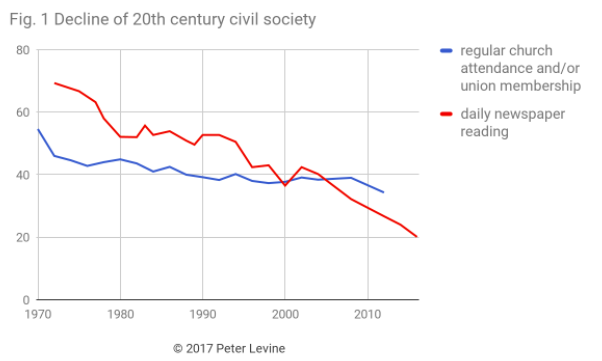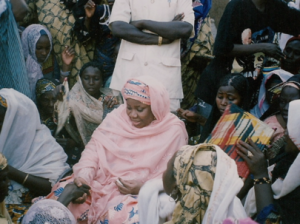In a certain sense, much of Karatani’s book is a brief in favor of the claim that Western philosophy was born in Turkey, not Greece, and then promptly destroyed by the Athenians, though some of the true Turkish philosophy occasionally reappears. But it’s difficult to ascertain why this slight geographic shift across the Aegean Sea should matter so much. (Karatani is Japanese, and so might have some slight preference for locating philosophy’s origins on his continent rather than the European one, but….) But like Heidegger before him, this allows Karatani to argue that the most prominent philosophical voices—Socrates, Plato, and Aristotle—were actually suppressing the insights that they stole from elsewhere and rebranding the whole enterprise.
The Axial Age: State, Market, Temple
Speaking very, very roughly, Buddha and Lao-tzu are contemporaries of Socrates, Plato, and Aristotle. What happened in the 6th and 5th centuries BCE to launch these philosophical traditions? The main candidates are novel political organizations (states and empires), population growth, and agricultural innovations.
Of course, it’s important to understand that there isn’t actually much evidence that the axial age was unique in generating egalitarian ethics, moralizing religious ideals, and wisdom traditions; there was a market for satirical stories like The Eloquent Peasant a millennium and a half earlier. But perhaps for the first time, following the Axial Age these innovations stuck.
Karatani’s claim, ironically, is that they didn’t stick. Instead, Ionia’s egalitarianism was replaced by Athens’ democratic inequality, where equality for a few was purchased at the expense of the domination of many more. Most political units, Karatani claims, went from tribal units to tribal agglomerations dominated by one tribe and structured by class contestations mapped onto those tribal lines. This, he argues, produces a despotic Asian state, characterized by bureaucratic price fixing. A market where buyers and sellers agree on prices through negotiation is thus a major innovation—one he credits to Ionia. And unlike in other city-states and empires, the free market did not amp up economic inequality in Ionia. Instead, it led to economic equality. Despite his disdain for neoliberalism, Karatani here sounds like a classical liberal: if only markets were truly free, there’d be no permanent winners and losers and free markets would produce both affluence and equality.
The Ionians were somehow able to dissolve their older tribal allegiances and create something he calls a “covenant community” without either tribal boundaries or fixed class identities. And they did this by embracing the commodity fetish of coinage, market pricing, and somehow refusing to form a state, not in the sense that all tribal societies refuse to be joined into states (until they are conquered) but in some independent way. This last refusal then becomes the basis of “moralizing” religions in which even prayer and sacrifice are understood as primarily reciprocal relationships with the divine.
Later, of course, Ionia was conquered by the Delian league, and then by the many antecedents of modern Turkey. But something briefly flared in Ionia that was eventually perverted into Athenian democracy: Karatani calls it isonomy.
Defining Isonomy
The term “isonomy” is usually defined in English as “equality before the law” in the sense of equal civil rights. I usually follow Herodotus in defining it as a kind of maximally inclusive government, such as election to public office by lottery would produce. However, there are two other candidates: isonomy sometimes refers to “home rule” or independence from foreign domination, and it was used by Hannah Arendt to refer to a kind of resistance to government which she calls “no-rule.”
Karatani starts with Arendt. Here’s the relevant passage from On Revolution:
“Freedom as a political phenomenon was coeval with the rise of the Greek city-states. Since Herodotus, it was understood as a form of political organization in which the citizens lived together under conditions of no-rule, without a division between ruler and ruled. This notion of no-rule was expressed by the word isonomy, whose outstanding characteristic among the forms of government, as the ancients had enumerated them, was that the notion of rule (the ‘archy’ from archein in monarchy and oligarchy, or the ‘cracy’ from kratein in democracy) was entirely absent from it. The polis was supposed to be an isonomy, not a democracy. The word ‘democracy,’ expressing even then majority rule, the rule of the many, was originally coined by those who were opposed to isonomy and who meant to say: What you say is ‘no-rule’ is in fact only another kind of rulership; it is the worst form of government, rule by the demos.
Hence, equality, which we, following Tocqueville’s insights, frequently see as a danger to freedom, was originally almost identical with it.”
Most readers of Arendt will know and love this passage. But it’s at odds with Herodotus and may well misread the historical political theory, if Karatani is correct. Karatani argues that the Ionians of the ancient Mediterranean world were able to achieve no-rule isonomy only through economic equality. From this economic equality they were able to dependably and sustainably preserve the possibility of equal self-government. And this economic equality was only possible because of a strong cosmopolitan right to immigrate and emigrate, along with a refusal of tribal or any other form of cultural or geographic loyalty to “origins.” “No-rule” then is only possible as “no-source,” no arche.
The Forgetting of Isonomy in Athenian Democratic Theory
The Athenians, in contrast, prioritized positive liberties like voting and speaking in the Assembly over exit. This meant that their democracy was founded both homogeneity and several forms of domination: the domestic domination of slaves and immigrants, on the one hand, and the imperial domination of foreign cities on the other.
Solon’s term as archon might have had some hope of creating the conditions for true equality, as he eliminated debts and granted membership in the newly formed assemby to resident foreigners. But it took a tyrant to institute these reforms, and the tyrant who followed Solon, Peisistratus, was able to seize power in large part because he executed land redistributions. This accustomed Athenian citizens to a novel form of equality, achievable only through the strong-man tactics of a tyrant who would enrich himself and his allies and thus preserve class relations.
Later Athenian tyrants would turn abroad to find resources to redistribute rather than risk their own wealth, like Percles who used profits from the Delian League to pay off Assembly members. Thereby, Athenians discovered something (seemingly) better than domestic equality: foreign conquests. Where the Ionians found true egalitarian isonomy through statelessness, the Athenians could only achieve a facsimile of isonomy–democracy–through a strong state and an adventurous military. An active military requires a clear distinction between agricultural labor (slaves) and the standing army and navy (citizens), so this is the foundation of Athenian democracy, which is why all efforts to learn modern lessons from Greek demoratic forms are doomed to fail.
Exit and Voice
Political philosophers are more likely to argue about the contrast between positive and negative liberty, or between freedom and equality, than to focus on the pairing of exit and voice that derives from Albert Hirschman’s book Exit, Voice, and Loyalty. Understanding negative liberties like freedom from censorship or freedom from the establishment of a state religion primarily in terms of individual liberty and restrictions on state power creates the wrong impression. It’s an impoverished ideal of free speech rights that conceives of them merely to allow unlimited self-expression. When we defend free speech to ensure the effective support for each citizen’s policy preferences—in terms of positive liberty and effective political participation—we similarly run into questions about how much to tolerate intolerable ideas beyond leaving them uncensored.
The Hirschman paradigm suggests that we are better off if we think of two kinds of engagement: effective voice and cheap exit. Consumers and workers can always express their distaste for a product or working condition through mere complaining, but effective voice requires that the companies we work for or purchase from actually listen and respond, even if they don’t always give us what we want. For our exercise of voice to be effective, we need to feel heard and we need to feel that the exchange of reasons that follows is not merely a distraction. In the same way, the right of exit cannot be merely notional but impractical. Where exit costs are high, as when competing products are much more expensive, or other job prospects are poor, there is no cheap exit and threats to leave or switch brands are implausible. The nation-state often combines weak voice and expensive or impossible exit: it’s almost impossible for most people to effectively emigrate legally, and most citizens do not have an effective means to exercise their voice. Instead we are exhorted to practice loyalty—patriotic displays—and for some reason many of us accept this hostage situation with the forced loyalty of Stockholm syndrome.
Karatani argues, however, for an alternate: equality is realized through freedom. “The ability to move is a fundamental precondition of isonomy.” But where could they go? Karatani argues that emigrants could easily form new colonies in Ionia, or join older ones without penalty or prejudice. The underlying commitment to cosmopolitanism is distinct from the kind of ease of travel we now associate with the nation-state. (And note that fewer Americans move for jobs than we used to do.)
A Positive Role for Colonization?
According to Karatani, the Ionian system of isonomy was based on the priority of cheap and easy exits. It’s hard to think of colonialism as a positive political impulse, but in this case it’s closer to the ideology of the frontier: rather than wrangle with entrenched interests or demand to be heard, an Ionian could simply pull up stakes and leave. As Karatani tells it, this both empowered Ionians in their effort to gain effective voice in the endeavors of their current states, and it ensured that all market transactions occurred in a truly reciprocal and ultimately egalitarian manner, without rent-seeking activities which could create permanent class divisions. Trade with neighboring city-states was carried out privately, while Athenian trade leagues were state affairs with plenty of skimming by elites. Conquest of other states could create a revenue stream for division as well.
In part this is based on Karatani’s claim that the ease of emigration and new city-state formation meant that no large farms and landholders could emerge. In contrast, the capture of slaves enables larger farms and a division of labor that then grounded the class system. The “despotic Asian state” always lurks as a possibility so long as human beings are too closely attached to the land, whether as serfs, slaves, or ethno-state citizens.
What is Faith to Free Men?
The most provocative claim in chapter one of Karatani’s book is his speculative comparison of Ionia to Iceland, where he notes that both Iceland and Ionian literature are characterized by a rejection of the gods: the Icelandic sagas seem to reject or ignore the Norse gods, while the Ionian philosophers are uncharacteristically naturalistic for the time. In the same way, 18th century American towns were also the product of migrants fleeing the strict class structures of a homeland, where many of them had been deeply religious. And yet these Americans formed relatively egalitarian communities once they arrived, characterized by easy exits to new frontiers, and a curiously deistic and pluralistic society blessed by Nature’s God. (Karatani doesn’t comment on the murder of indigenous peoples that made that frontier possible, however.)
Karatani thus sees freedom of movement, naturalistic religion, and social and economic equality as the key to isonomy. Returning to Arendt, he advocates for the ward system to help to broaden the sphere in which freedom can produce equality.
Tune in next week to Joseph’s blog Between Two Untruths to read about chapter two.





